Opposition parties call for ‘safeguards for cultural freedom’
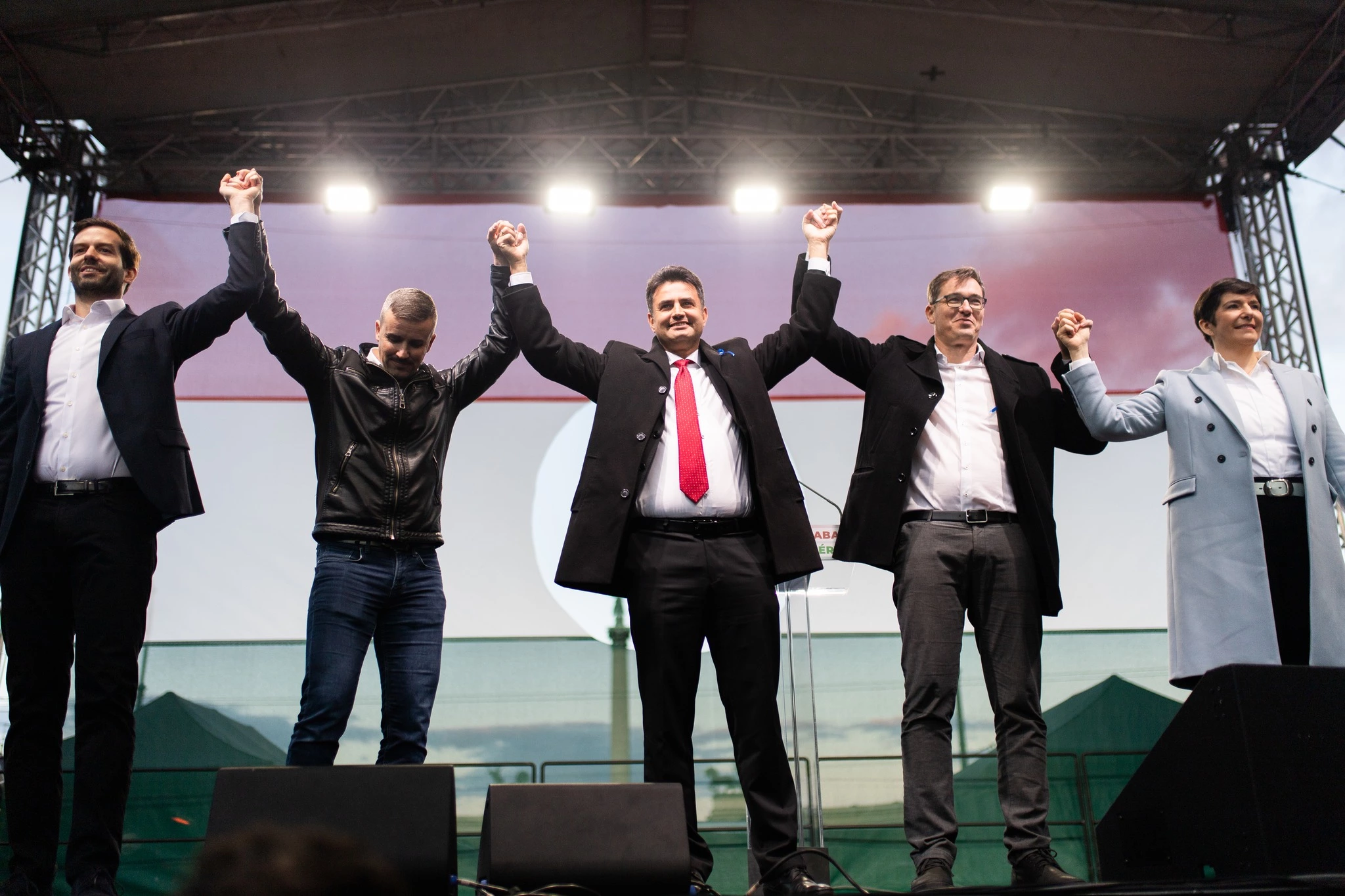
restore institutions like the Office of Cultural Heritage,
The government would restore their public employee status and other financial benefits,

restore institutions like the Office of Cultural Heritage,
The government would restore their public employee status and other financial benefits,

Gergely Gulyás, the prime minister’s chief of staff, was asked today if there would be a prime ministerial debate ahead of the April 3 general election. He said it was “best to wait for the start of the official campaign period” when it came to dealing with the campaign. Thus, he did not exclude it.
Asked about recent comments by opposition prime ministerial candidate Péter Márki-Zay, Gulyás said the majority of his remarks “are in line with the positions held by the left over the past decades”. “That’s what it’s been easy for the Hungarian left wing to support him,” Gulyás added. He said a potential opposition coalition would also be tainted by anti-Semitism. Referring to conservative Jobbik, Gulyás said that though anti-Semitism was not “a continuation of the left’s past activities, they’re still allying themselves with those who, just a few years ago, called for the listing of Jews”.
Concerning the 13-month pension, Gulyás said the Socialist government of Ferenc Gyurcsány had scrapped the measure in the 2000s, and Márki-Zay, too, was against it.
“So the 13th-month pension would obviously be under threat if the left came to power,”
he said.
Asked if a new left-wing government could be expected to privatise health care, Gulyás said the last left-wing government had wanted to privatise medical care and hospitals. “And now their prime ministerial candidate is saying that only privatisation can help the sector in the current situation,” Gulyás said.
“Péter Márki-Zay thinks health care is a business.”
He also said that most remarks coming from the opposition were not criticisms levelled at the government but rather
“open hate-mongering”.
Gulyás noted that rising energy prices had started “an inflationary spiral” in the world, and he insisted that the EU’s energy policy would result in further price hikes. The government is determined to fight higher prices and save people from the burden of inflation as much as possible, he said, adding that the government’s scheme reducing utility bills had helped each households save 500,000 forints, while he also hailed the government’s move to put a cap on fuel prices, saying that the government would decide whether to maintain that measure in the middle of February.
Meanwhile, government spokeswoman Alexandra Szentkirályi said the government would contribute funding to localities with populations under 5,000 to finance pay hikes for their mayors.
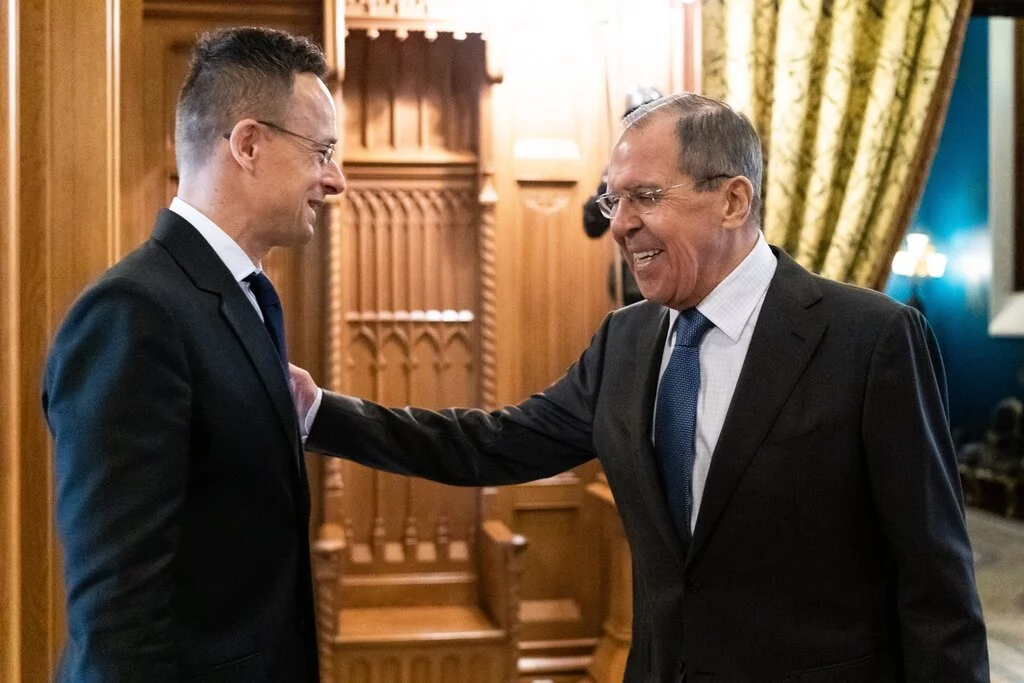
Szijjártó visited Moscow, where he met counterpart Sergei Lavrov and received an award granted in recognition of efforts to promote “Russia-Hungary relations,
Russian President Vladimir Putin is scheduled to visit Hungary in mid-February, during the campaign for the general election, Gyöngyösi said. He described the planned visit as “more than a symbolic gesture”, adding that “it seems [Prime Minister]
Viktor Orbán wants to lead Hungary out of the EU and western alliances in the direction of Russia”.
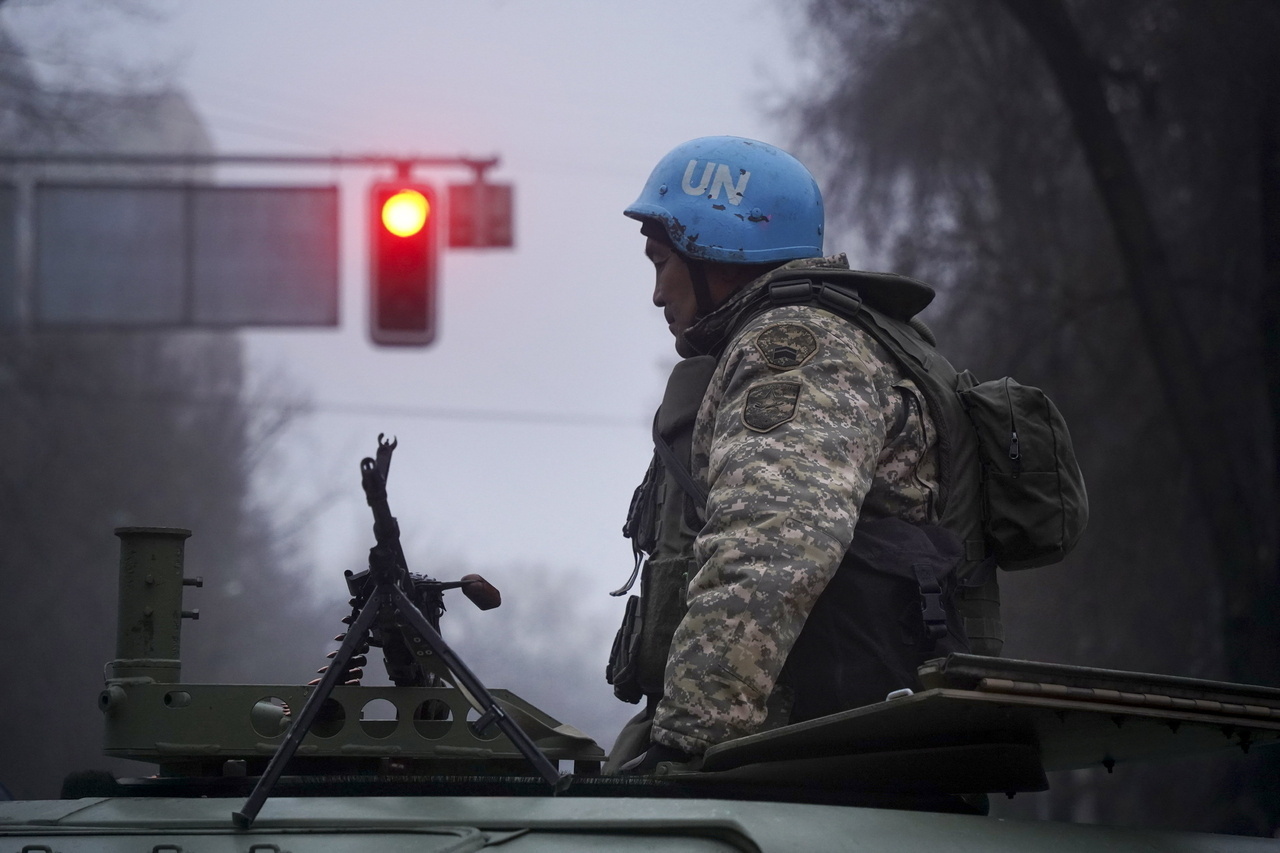
Remarks of Jobbik MEP Gyöngyösi
At present, it’s quite difficult to clearly identify the motives behind the increasingly inflamed protests in Kazakhstan. While news reports talk about a spontaneous unrest caused by the sudden rise of energy prices, President Tokayev and the Kazakh government have issued official statements on a foreign terrorist intervention aimed at destabilizing the Central Asian country. In contrast, several foreign analysts write about a national uprising to overthrow and democratize the authoritarian regime built and strictly controlled by iron-fisted dictator Nursultan Nazarbayev for three decades. Although Nazarbayev, who had already established his political career during the Communist times as one of the top executive decision makers of the Soviet Union and then as the president of the independent Kazakhstan for three decades after the Soviet Union’s collapse, resigned from the presidency in favour of his appointed successor in 2019, he still remained the country’s informal ruler pulling strings in the background.
That is to say until now, because Tokayev has recently removed his predecessor from every position in response to the seemingly never-ending protests. This means the official end of the Nazarbayev era.
Which of the above scenarios is true? Like in most cases, the truth probably lies somewhere between the partial truths above. Along with the social tensions brought more to the light by the pandemic, high energy prices must certainly have had a role in the unrest. On the other hand, you cannot rule out the possibility of a foreign destabilization attempt of a country in an extremely difficult geopolitical position, either. Undoubtedly, Nazarbayev’s Kazakhstan has not been a shining star of pluralistic democracy and the rule of law, and many of its citizens probably want to live in a country with more freedom.
Either way, and regardless of what led to the escalation of violence, the fact of the matter is that Moscow’s military assistance was once again needed to restore order in yet another former Soviet republic following Belarus, where Russia had to help out the local dictator after a fraudulent election in 2020.
Just a few weeks after Russian president Vladimir Putin made it clear for the EU’s leaders that he considered the post-Soviet republics as his own sphere of interest and that he would do whatever it takes to prevent these countries from turning toward the West in any shape or form, perhaps nobody is surprised to see Russian troops deployed to the streets of Almaty to restore order – just like they were in Budapest in 1956.
Beside the former Soviet republics however, these decisions may pose a risk to other countries as well. Putin’s statement revived the Brezhnev Doctrine which, back at the time, established the Soviet dominance over not just the now former republics but the ideologically bound Eastern Central European countries as well. Back then the connective tissue was the Communist ideology. Today it is the openly anti-Western, fundamentally corrupt, populist and anti-democratic illiberalism, which serves Russia’s geopolitical interests.
The supreme European leader of this ideology is Viktor Orbán, who copied Putin’s example and built up an absolute power in Hungary during his 12-year reign, complete with dominance over every area of life.
In today’s Hungary, nepotism and corrupt state redistribution not only permeate every segment of the economy, but they have subdued the President of the Republic, the Parliament, the prosecution service, the intelligence services and the entire media, while Hungary has drifted farther and farther away from the European democratic values and ended up in the Russian sphere of interest due to Orbán’s foreign policy. As a result, the ground is prepared to keep Viktor Orbán in power in the national elections next April. And if a wrench happens to be thrown in the works, Orbán could probably still rely on Moscow’s comradeship and assistance, just like his friend Lukashenka did.
Preventing the revival of the Cold War and the division of Europe is vital for not just Hungary, which had already committed to the West over a thousand years ago, but for the whole of Europe as well.
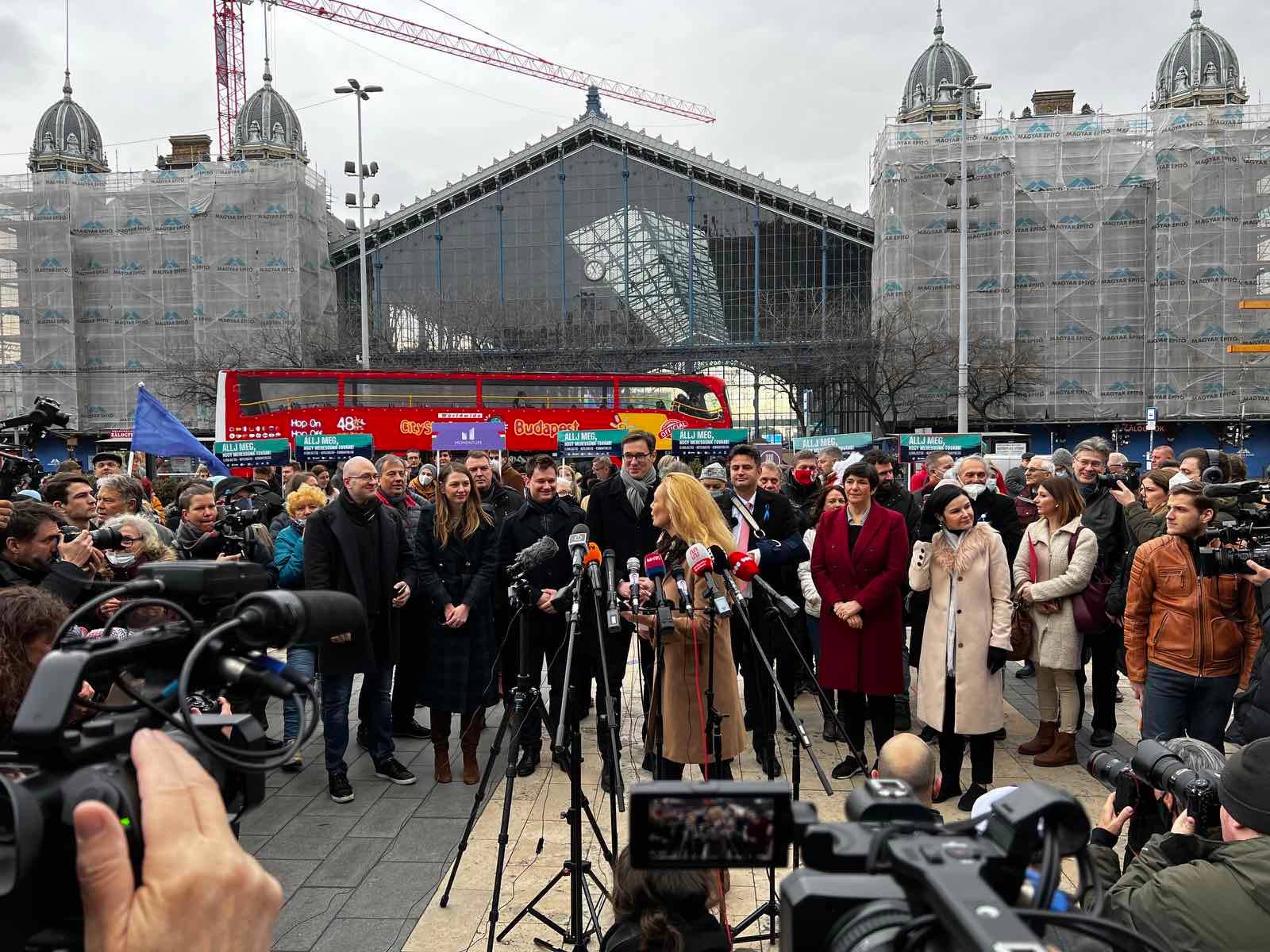
“a majority which could release Hungary from the most corrupt government in its history”.
“each signature is as much contribution as a vote”
ruling Fidesz party was “pseudo-patriotic” and “betrayed Hungary’s young people”.
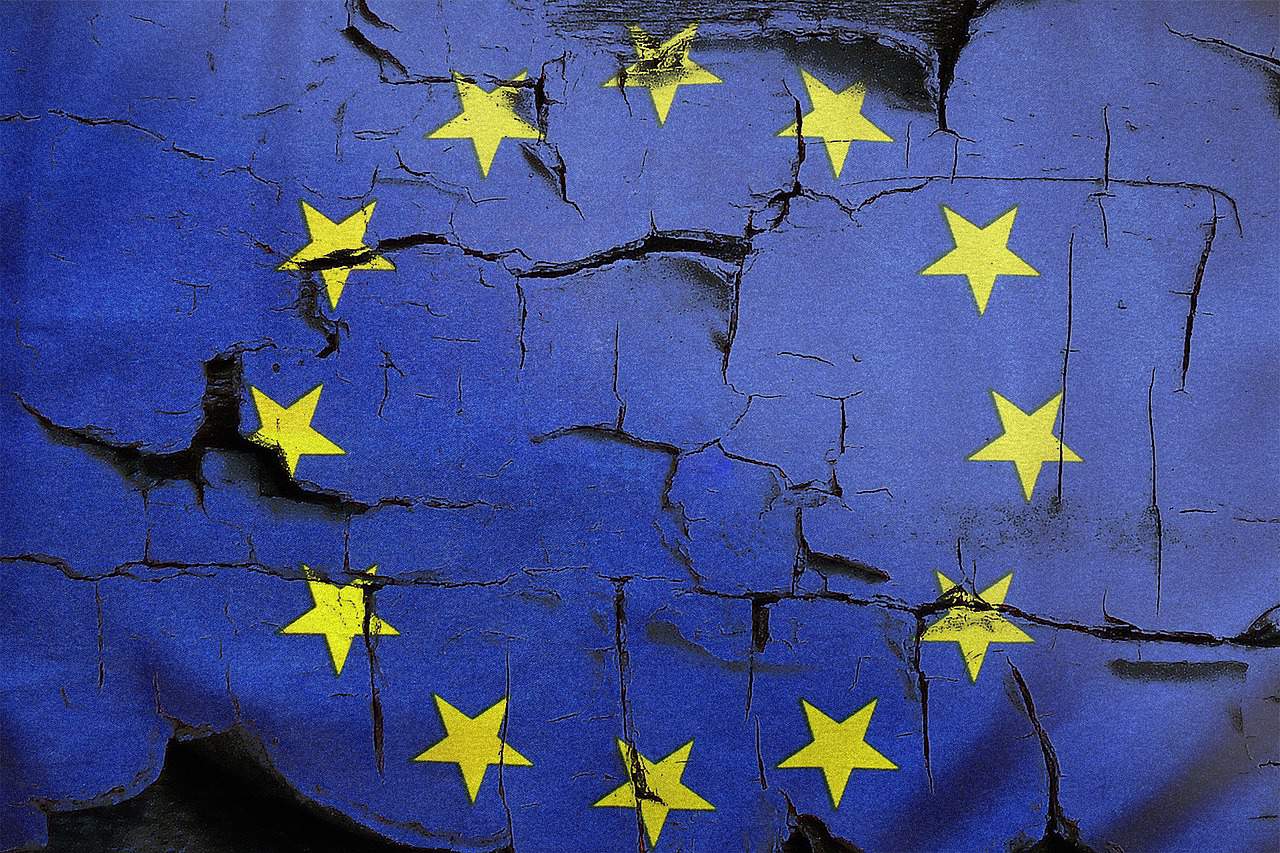
We publish without any changes an open letter and a New Year’s appeal by by MEPs Attila Ara-Kovács (Democratic Coalition) and Márton Gyöngyösi (Jobbik) to the Hungarian and Central European intelligentsia:
“Eighty-four years after Munich, seventy-seven years after Yalta and just thirty-three years after tearing down the Iron Curtain, our region has once again become a bargaining chip in a deal between the big powers. This deal would determine the future of our region for many generations to come. We had no say in our fate in Munich or Yalta, but we must speak up this time.
Russia’s president Vladimir Putin has recently made it clear for the EU’s leaders that he wants to revive the Brezhnev Doctrine: he is working on rebuilding the Russian sphere of interest, which involves controlling the post-Soviet region as well as exercising influence over the EU’s Eastern and Central European periphery. If, by embracing the “two-speed Europe” concept, the European Union accepts Moscow’s deal, it could undoubtedly provide a short-term remedy for many of its internal problems: it could get rid of politicians like Orbán, who have been a wrench in the works of European integration, as well as temporarily solve the Ukraine crisis by pacifying Putin. The “core-EU” could continue growing seamlessly and compete successfully with such rivals as China. The countries of the periphery don’t want such European values as pluralistic democracy, rule of law, freedom of the press or the European Public Prosecutor’s Office anyway, so they could get what they want and go their own way.
Driven by nothing but economic interests, a pragmatically loose cooperation between the core and the periphery would suit everybody: the profit requirements of the western multinational companies would still be met, while Orbán could continue building his authoritarian regime without any disturbance. In the future, Orbán wouldn’t need to explain himself for his rule of law violations, he could follow Putin’s example and enjoy his assistance in building his regime, while the EU could finally get rid of the “thorn in its side” that hinders its operation and challenges its authority and abilities on a daily basis.
The Biden-Putin meeting is still to come, but there’s reason to be afraid that a similar logic could work there as well: if the US could separate Russia from China, giving up on Central and Eastern Europe would not be too high a price. The politicians like Orbán have been a burden for America for quite a while.
Of course, we are fully aware that neither Orbán nor Putin can ever be pacified. Just like all anti-democratic leaders, they understand nothing but force. In its modern history, Europe has made several mistakes with serious ramifications lasting over decades: just think about the failure of the League of Nations and the consequences of the Yalta Agreement.
Let’s speak up before it’s too late! We are inviting all of you to join our initiative to prevent the big powers from deciding Central and Eastern Europe’s fate over our heads again. This would also be the real purpose of the Visegrad Cooperation, which is in shambles at the moment, unfortunately. We mustn’t stay silent this time! Europe cannot afford to make a mistake that could easily lead to the disintegration of the European Union.
Dear friends,
Please sign and join our initiative that we are launching at the beginning of the New Year. Don’t let the big powers return to the practice of deciding the future of next generations without our consent! Link
We don’t want to be second- and third-class Europeans living under Russian influence at the EU’s periphery! Hungary’s and Central Europe’s place has been in the democratic European welfare community with all its responsibilities and benefits, and we are fully committed to keep it that way in the future, too.”
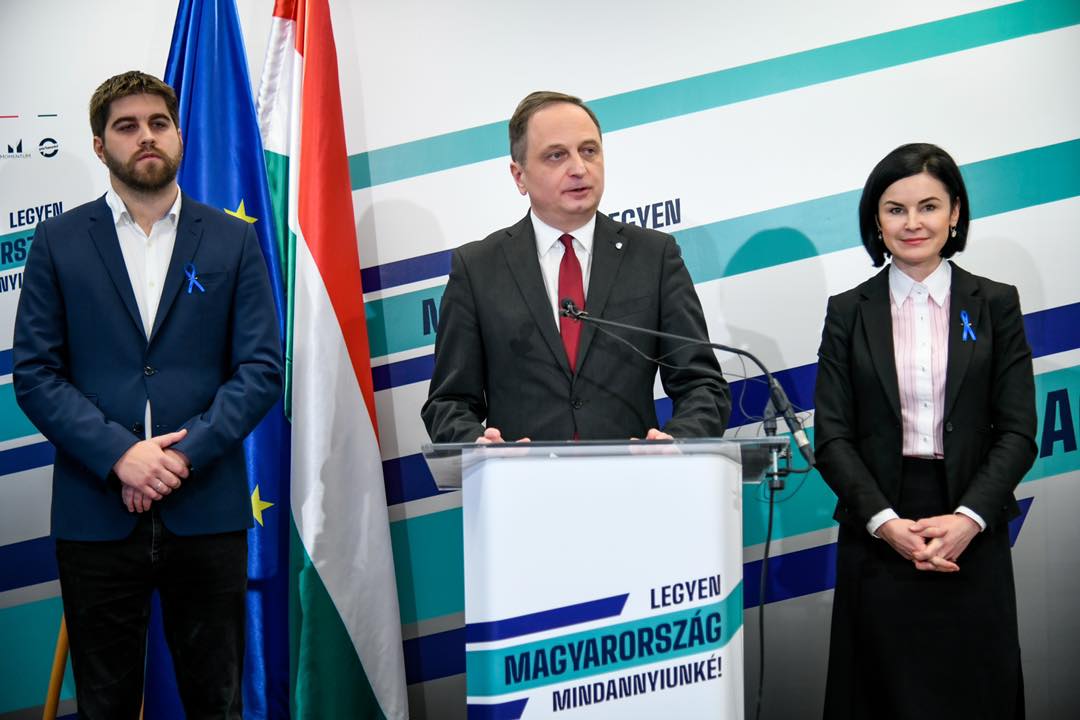
Opposition parties on Thursday promised to implement a one-time large-scale wage hike and wage supplements for teachers should the opposition come to power after the general election this spring.
Ágnes Kunhalmi of the Socialist Party told an online press conference that Hungary had failed to modernise its education sector over the past 10 to 12 years. She said the country was struggling with a shortage of teachers, adding that many of Hungary’s teachers were old and many were leaving the profession.
She said that
once teachers’ wages were hiked, the new government would have to gradually keep raising wages in the sector in order to make the profession attractive again.
She also underlined the importance of providing wage supplements to those teaching, for example, disadvantaged and special needs students.
Koloman Brenner of Jobbik said the new government would give students a chance to pass at least an intermediate language exam before graduating from secondary school. Students enrolled in vocational training will also be given the opportunity to learn foreign languages, he added.
He also promised that the first degree would be tuition-free for university and college students, adding that this policy would also apply conditionally to graduate and PhD programmes.
Brenner said
the new government would review the foundation model under which most universities now operate and “restore the government’s democratic control over state-financed higher education”.
Endre Tóth, a board member of the Momentum Movement, promised the establishment of modern schools that favour the development of students’ skills, creativity and team work.
“Hungary is in need of open schools where everyone has equal opportunities and whose operations local communities have a say in,” he said.
The new government, Tóth said, would reduce the burdens on both teachers and students, place greater emphasis on critical thinking, work to improve financial literacy and expand digital skills. As part of the latter goal, he added, the government would distribute tablets to all students. If it comes to power, the opposition will raise the school-leaving age to 18 again, he said.
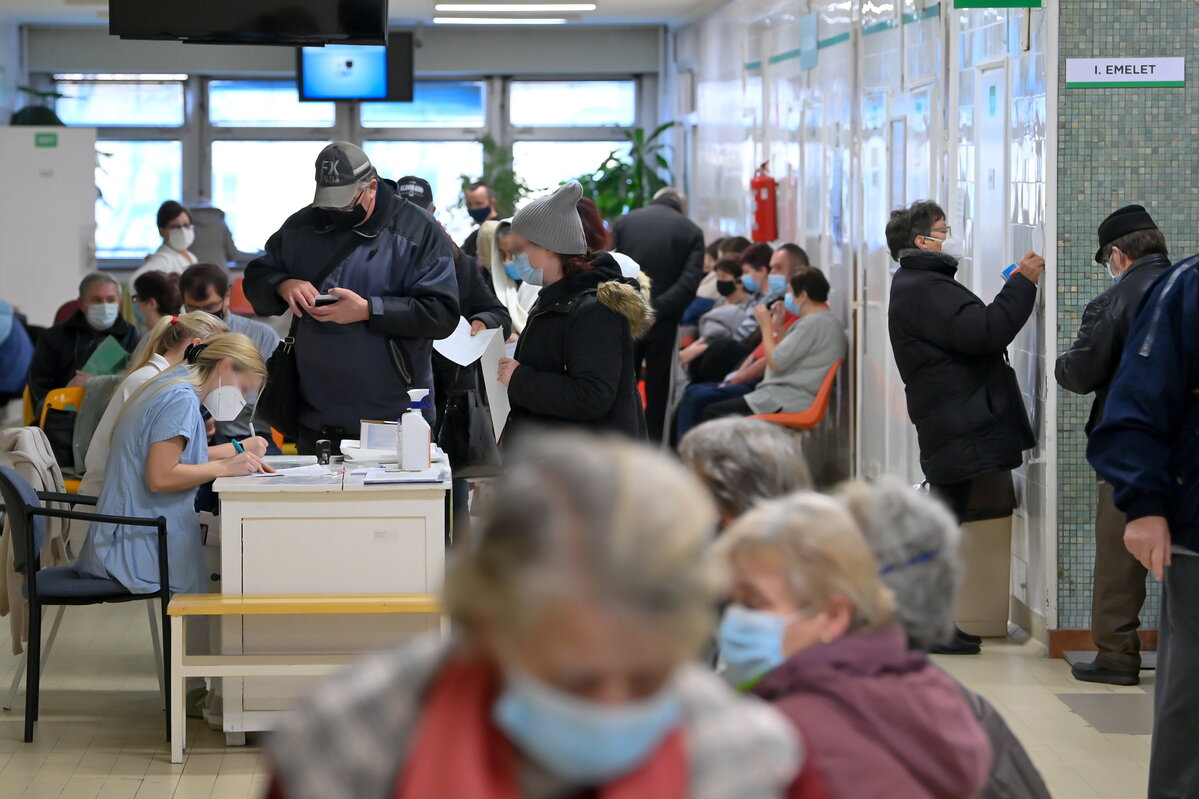
The number of tests carried out on Tuesday was 15,500, “outrageously low”,
Wages will be further hiked, and they will set up an independent health-care ministry to organise the sector,
Financing should be adjusted to the “real costs of examinations and interventions” and wages should provide incentives for performance,

narrow the gap between underdeveloped regions and more advanced ones,
Police officers, fire fighters, and health-care employees need to paid better in the hope of retaining their services,
The opposition wants Hungary to join the European Public Prosecutor and to set up a national anti-corruption agency,
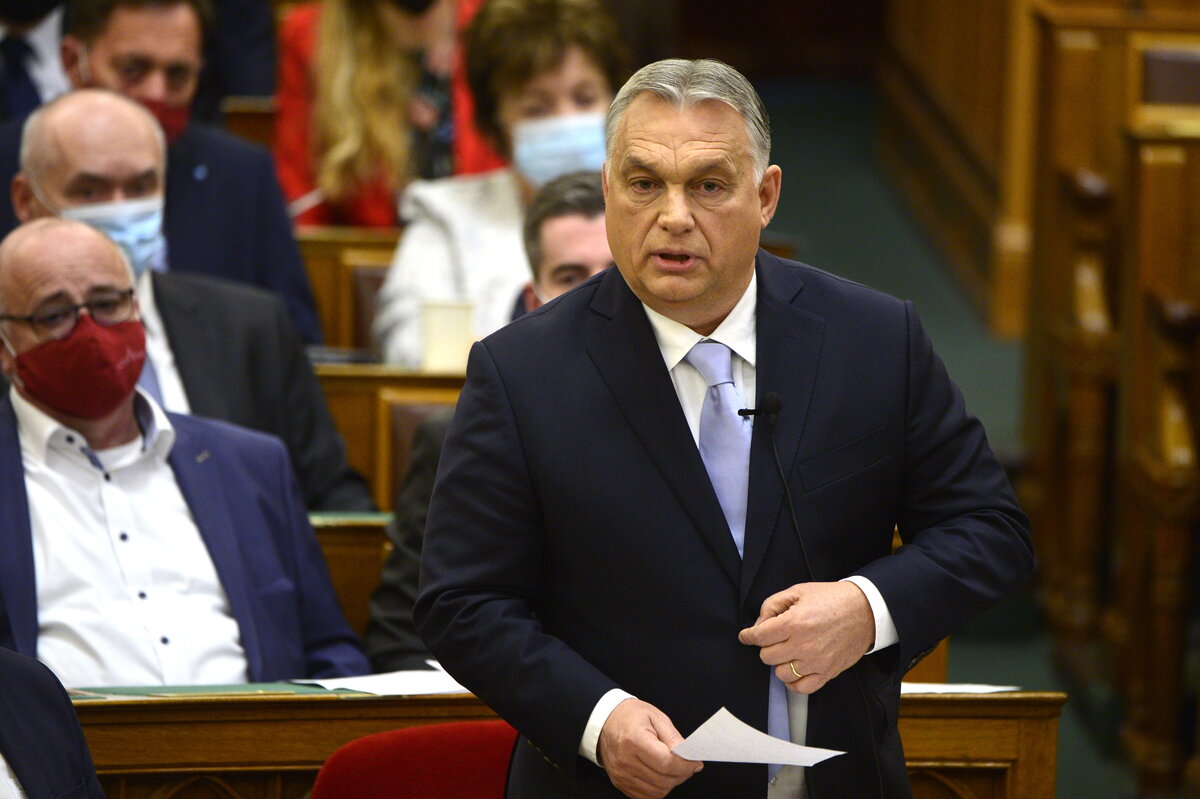
“It is impossible for opposition deputies to get professional and thorough answers to questions concerning, for example, the Pegasus spy software.”
the term ‘classified information’ was “not a legal category but a tool of political communications”.

faced “similar allegations to Völner”, but “their parliamentary seats are the key to maintaining Fidesz’s two-thirds majority”.
Völner is suspected of having received “millions of forints” in bribes from the president of the branch of bailiffs over a sustained period of time.
“provided services to certain individuals in other areas” and if the bribes in question had “also ended up in other places”.
crime syndicate led by Viktor Orbán,”
Katalin Cseh is up to the eyes in a corruption scandal, a mafia is operating at the Metropolitan Council,
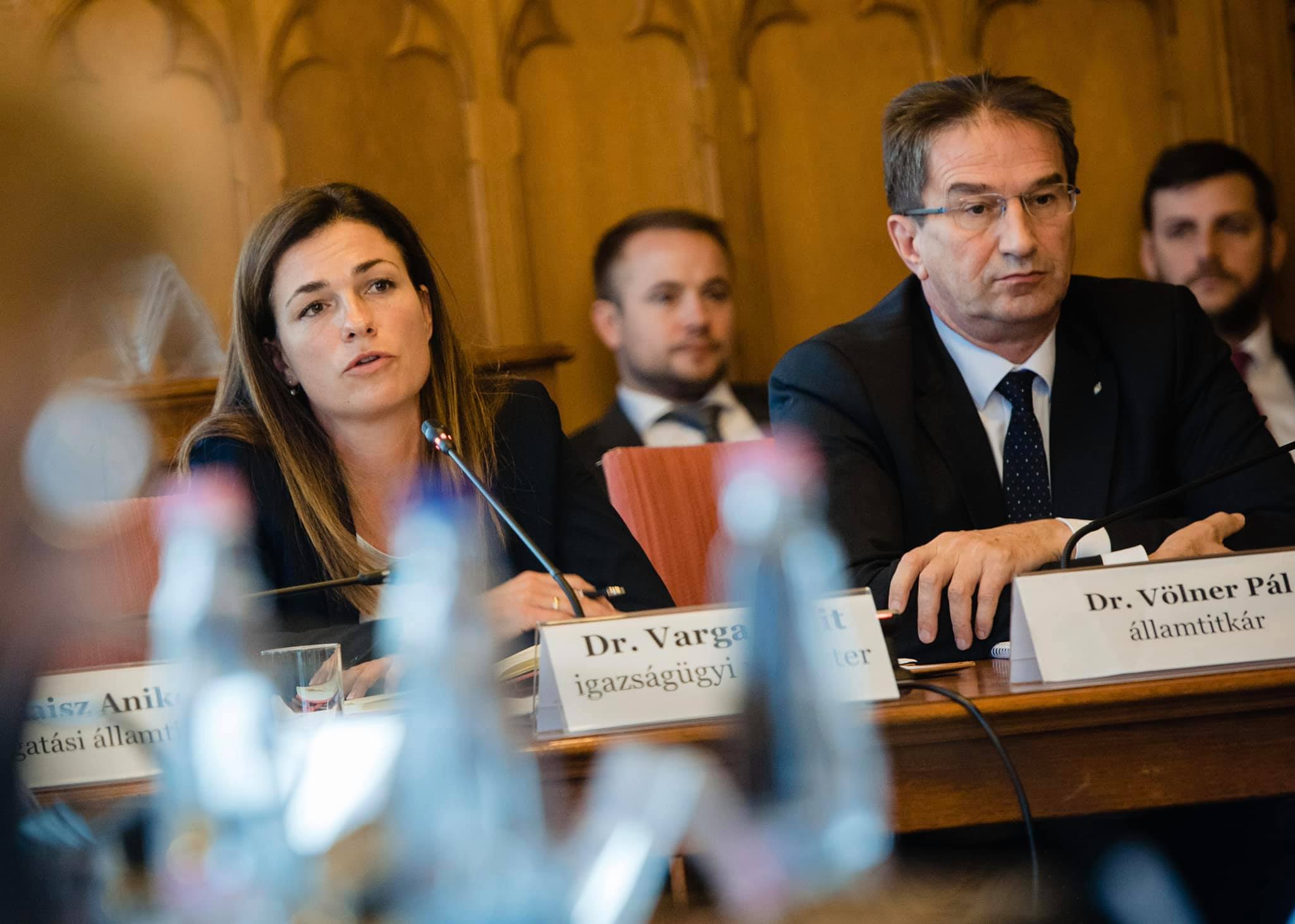
As we wrote today, Pál Völner, the state secretary of the ministry of justice, has resigned after the chief prosecutor’s office asked parliament to lift his immunity so he can defend himself against charges of receiving bribes on a regular basis.
In response, at a joint press conference opposition politicians called on Justice Minister Judit Varga to resign.
Parbeszed deputy group leader Olivio Kocsis-Cake called the affair “the most serious corruption scandal of the government”, saying that it involved a state secretary who “had ordered the surveillance of persons”.
“Varga’s role should also be assessed because it was her who authorised the state secretary’s actions,” he said.
Socialist deputy group leader Tamás Harangozó said
the case demonstrated “how thoroughly corrupt [ruling] Fidesz’s regime” was.
Jobbik lawmaker Tibor Nunkovics called on Völner to resign from his mandate in parliament and DK lawmaker László Szakács described Volner “as a key player in the Pegasus affair”.
Momentum spokesman Márton Tompos and LMP group leader Lóránt László Keresztes said
Varga had to resign because she should take responsibility for what had happened in the ministry.
Ruling Fidesz responded as saying that the opposition left “showed no sign of being ready to clarify the corruption surrounding the sale of Budapest City Hall and other cases of corruption”. It said in a statement that Gergely Karácsony, the mayor of Budapest, “had been hiding away” for weeks from clearing the affair while “it has become clear that there is a mafia operating in the City Hall”.
The ruling parties will support lifting Völner’s parliamentary immunity because the state secretary “has to clear himself”, Fidesz said.
Karácsony said a screening committee had to be set up in order to assess the systemic problems in connection with the “often cruel and inhumane” execution of claims included in court decisions. Karácsony, who is also co-leader of Párbeszéd, said on Facebook that
the committee must also reveal if there were any political ties involved in the case and assess the reasons behind “the outstandingly large number of forced evictions under the Orbán government”.

Jobbik MEP Márton Gyöngyösi’s thoughts in the issue:
Little more than a year ago, the European Parliament’s Committee on Foreign Affairs (AFET) hosted a meeting with Ethiopia’s Nobel Peace Prize winner premier Abiy Ali. Back then it seemed that the extremely poor but quickly developing African country’s greatest international challenge would be to manage the huge Nile dam project fiercely opposed by Sudan and Egypt. We couldn’t have been more mistaken.
Last year, when Ethiopian Prime Minister Abiy Ali arrived in the EP building to answer our questions, we saw an energetic young premier talking about grand plans. We were not surprised, because Ali had just received the Nobel Peace Prize for hammering out a peace treaty with Eritrea after many years of hostilities between the two countries, and Ethiopia seemed to have gained a new momentum.
Of course, we were aware how deep the African country was coming from: Ethiopia’s recent history is characterized by a series of tribal wars and dictatorships.
Yet it seemed at the time that they can make peace in this extremely poor country with such a rich history. Now we know it was a vain hope. Basing his policies on a common Ethiopian identity, Abiy Ali’s ideas were not welcomed by a nation struggling with an extremely deep ethnic divide, which eventually led to the former governing force Tigray People’s Liberation Front engaging in a war with the central government. Ali thought he could overcome the rebels, but he failed. Due to the extended conflict, not only did TPLF warriors approach the capital Addis Ababa, but even the politically less prominent Oromo people raised the flag of rebellion – bad news for Ali, who partly belongs to this ethnic group himself. Meanwhile, we are getting more and more reports of ethnic cleansing atrocities now reaching the capital, too.
To make matters worse, Ali made some hateful comments, blurring the opposing militia with the entire Tigray people.
As a silver lining, most analysts agree that Ethiopia is “at least” not likely to fall apart: despite all the conflicts, the country’s integrity may still be strong enough thanks to two factors: its borders were created organically instead being drawn by colonizing hands, and Ethiopia’s statehood dates back to a long history. What may easily happen however, is that one of the ethnic groups, just as it’s happened before, will take full control of the country, which, beside the immediate humanitarian ramifications, may deepen the divide even more.
The question is: who can stop this runaway war?
The ethnically organized militias will probably be unwilling to share the power, while Ali’s recent policies have got him completely isolated. If no one can intervene, the scenario of the former Yugoslavia appears to be increasingly likely. Back then, it took four years to stop the bloodshed in a region located right on the border of Western Europe. What should we expect in Ethiopia where western countries seem to have no other goals left than to evacuate their citizens?
We can only hope Ethiopia won’t become another, somewhat neglected crisis hotbed of the world.

János Stummer’s Open Letter to the President of the European Parliament
Dear Mr President,
I am contacting you in connection with your fact-finding delegation’s visit to Hungary between 29 September and 1 October 2021 in order to assess the freedom of the press and the scientific community as well as the respect for minority rights and the rule of law in Hungary.
The written report on the delegation’s findings was released a few days ago and it states that the Hungarian use of the Pegasus software was also discussed multiple times during your three-day visit.
The National Security Committee of the Hungarian National Assembly conducts the parliamentary oversight of the operation of the Hungarian intelligence services under the effective Hungarian law. As the chairman of the committee, I attach particular importance to my homeland’s sovereignty, integrity and the inviolability of its rule of law.
That’s why I was highly concerned when I read your report stating that Justice Minister Judit Varga had informed the delegation regarding the Pegasus affair that “it was under a parliamentary inquiry led by the opposition” in Hungary.
In stark contrast with the above statement, the truth is that my motion to initiate a fact-finding inquiry in compliance with the relevant provisions of Act CXXV of 1995 of Hungary on the national security services was rejected twice by the pro-government MPs who form the majority in the National Security Committee: first on 20 September 2021, and then a second time on 18 October 2021.
Had the representatives of Judit Varga’s party passed my motion either time, the members of the inquiry committee would have been able to oblige any person, body or organization in possession of any files, data or other information relevant to the fact-finding inquiry, to cooperate with the investigation.
Due to the obstruction of the pro-government MPs, we have been unable to conduct such an inquiry to this day, thus we have no opportunity to investigate this matter. Therefore, if Ms Varga indeed informed you to the effect she did according to the report, i.e., that an inquiry committee was looking into the Pegasus affair, then you have been misled.
MP János Stummer
Chairman,
National Security Committee of the Hungarian National Assembly
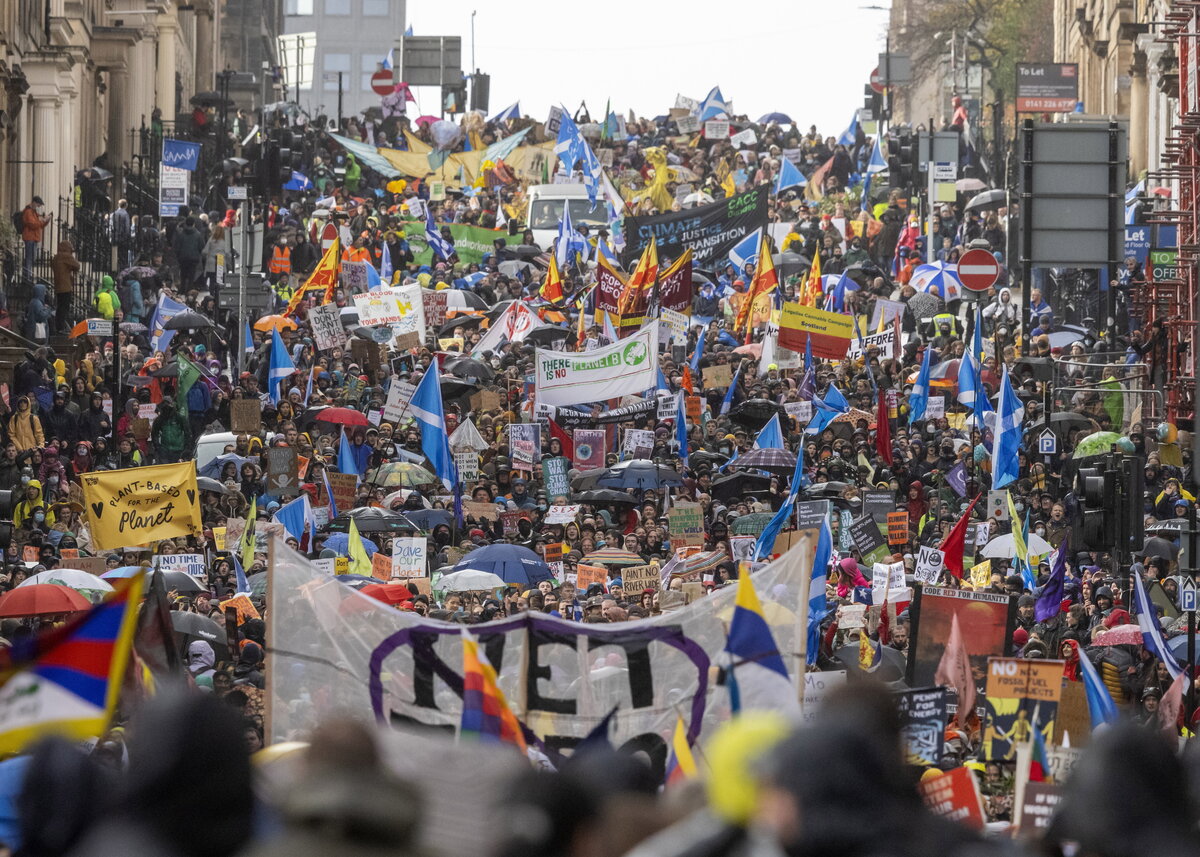
Jobbik MEP Márton Gyöngyösi’s thoughts in the issue
If you have an insight into the EU’s political processes, you are probably familiar with the time- and energy-intensive practice always applied by the 27-member community to eventually arrive at a final decision or just a joint statement on even the simplest of questions. This should come as no surprise because, as we are fully aware, it’s hard to find a compromise in any issue among 27 points of view and interests. And since it is indeed a compromise, when it happens, the proverbial glass is either half full or half empty for some.
That’s exactly what happened at the end of the Glasgow climate summit, too: we may have mixed feelings about the final agreement and our judgement largely depends on whose point of view we take. But could it actually be any different when it comes to an agreement that was negotiated and signed by nearly 200 countries, especially when the debate is about the most pressing and difficult issue: our climate and the global warming that threatens the future of our planet?
Should we consider the COP climate conference a success or a failure?
While we completely understand such feelings as the desperation of the countries stricken by the global warming induced natural disasters or the future generations’ frustration with the lack of political will or the laborious decision-making processes, it’s vital to stay with both feet on the ground of reality and feasibility when we evaluate the climate conference and its results. Although we do have a lot to thank activists like Greta Thunberg and other NGOs for their efforts in the area of climate protection, especially because they ultimately kept the issue on the agenda and put pressure on decision makers, unfortunately the often overly ambitious goals and unrealistic expectations dishearten and depress many people when the results fall short of what they expected.
Opposition party pledges annual €816 million for home insulation support
However, the depression is not justified this time, because the conference did actually achieve significant breakthroughs in several issues.
Of course, we can lament the fact that the conference and the final declaration did not commit to a specific target date for phasing out coal-fired power, and produced hardly more than a reference to curbing methane emissions, but, realistically speaking, it’s a miracle that the carbon issue made it to the final draft at all, instead of falling victim to the veto of the developing countries who still rely on coal as a key energy source. The richer countries have undoubtedly failed to pay up the promised financial contributions so sorely needed by poorer countries for adapting their economies, but it’s also a fact that the agreement managed to double the funding for the transition of developing countries by involving a wider group of richer countries and private sector stakeholders, including the world’s largest corporations that were persuaded to make generous pledges in order to ultimately achieve net zero emission. Indeed, the mandatory NDCs, i.e., Nationally Determined Contributions are currently far below the level needed to make
the goal of carbon neutrality by 2050 feasible, but the summit did make each participant promise to come up with new commitments and upgraded plans for next year’s COP27 conference in Egypt.
On top of all that, the Glasgow conference, contrary to all expectations, was able to keep the global warming limit at the level of 1.5 degrees Celsius which was originally agreed by the participants of the 2015 Paris summit and which, in the present state of scientific knowledge, is vital for us to avoid a climate catastrophe. This goal probably would not have been achieved without the participants finalizing the so-called Paris Agreement Rulebook, making the Agreement operational and implementable at last.
V4 countries back nuclear energy for climate protection
They also signed agreements on reducing methane emissions, cutting down on deforestation and supporting zero-emission transport, i.e., the production of electric vehicles.
Another exceptionally positive outcome of the COP26 is that western countries committed to mobilise $8.5 billion over the next five years to enable the transition of South Africa, i.e., Africa’s largest economy, from carbon based power plants to more sustainable solutions. It may seem like a tiny step, but the summit has just created a citable and attractive precedent of how the developed world can support the poorer countries in their transition.
Based on these achievements, the agenda of the next COP27 Egypt conference is already given.
While we have absolutely no reason to lean back after the Glasgow conference, it would be an equally big mistake to fall into lethargy over the deficiencies of the agreement. In the upcoming decades, each country will face enormous challenges to make the decisions allowing us to hand down a more sustainable and liveable world to the next generations to come. For that to happen however, we’ll need ambitious but realistic goals, solidarity and cooperative efforts from all nations.
As far as climate conferences are concerned, they will always fall short of the expectations but, despite all their deficiencies and imperfections, they are still our planet’s greatest and perhaps only chance and hope for us to achieve our goals together.
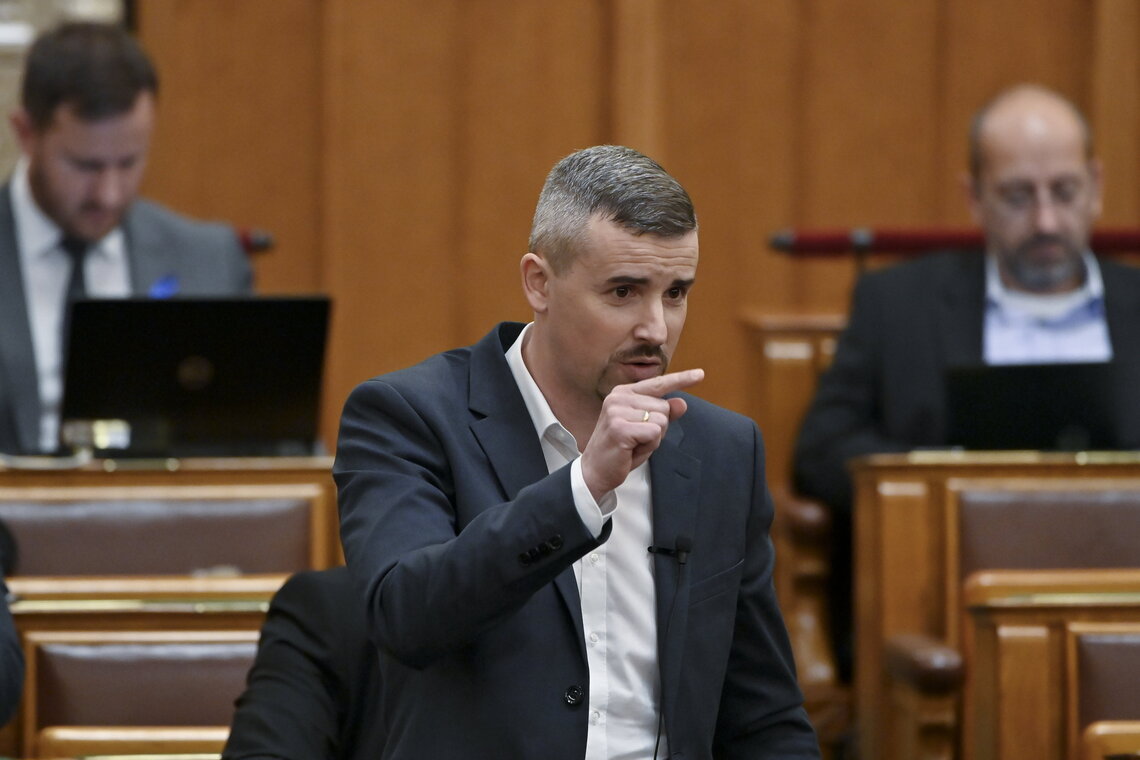
Péter Jakab’s open letter to the President of the European Commission
Dear Mme von der Leyen,
The year 2022 will bring perhaps the most important election for Hungary’s young democracy since 1989. The stakes are extremely high. We are at a crossroads where our homeland may remain a reliable member of the European Union as a pluralistic democracy or permanently sink into a corruption-ridden autocratic system with a vested interest in sabotaging the European Union.
Over the past twelve years,
the Orbán regime has systematically been undermining Hungary’s rule of law,
depriving democratic institutions of their functions, eliminating the independent free press, destroying local and municipal autonomy, hampering the operation of independent cultural and academic institutions and NGOs, running smear campaigns against minorities, while constantly instigating against the European Union’s institutions and leaders. Furthermore, the Orbán regime now openly functions as the advance guard of eastern autocracies rivalling the European Union. Unfortunately, the EU has been standing somewhat idly by.
Incorporating the widest democratic political spectrum from the conservative centre-right to the liberal left, the Hungarian democratic opposition formed an alliance to join their forces for the election and save Hungary’s democracy and European position.
Over the past nearly twelve years, the Orbán government’s
main source of legitimacy has been its parliamentary majority, which it achieved by constantly rewriting election rules in line with its own interest, so that Viktor Orbán and his party could stay in power.
If it was up to him, Orbán would prefer to govern without the Parliament and any constitutional restrictions, by way of a so-called “fundamental law” that can regularly be amended to legalize the suppression of democratic institutions, allowing him to govern by decree. Unfortunately, Hungary’s and Germany’s history has seen numerous precedents of how legal may not necessarily equal legitimate if it serves the interests of an autocrat rather than the majority of citizens.
As early as in 2018, international observers already established that the elections were neither free nor fair, let alone honest, especially because of such factors as pro-government media dominance, institutionalized misinformation and electoral abuse. One of the commonly known fraudulent methods is called
“voter tourism” in Hungary.
It means that massive numbers of pro-government voters, living either in Hungary or abroad, are re-registered under the same address located in fiercely competitive swing districts. The procedure has enabled the Orbán government to manipulate the outcome of the elections in its own favour, thus obtaining the majority of parliamentary seats. Centre-right Jobbik party’s provincial organizations and activists have been spearheading the movement to uncover these frauds, but the electoral abuse had no significant consequences for the perpetrators, even though this pro-government practice has been illegal thus far. The consequences will be even less significant now, because the Orbán government has just “legalized” this dishonest practice by recently amending the law, as passed by the Parliament’s pro-government majority on 9 November.
The adopted bill will modify the definition of the term “residence”: citizens will no longer need to actually reside, i.e., live habitually under the address where they have officially taken up residence. Thus the legislation may open the gates even wider for organized electoral fraud by legalizing voter tourism.
As one of its most important data for voter identification, Hungary’s electoral system relies on the citizens’ address, which determines their location of voting as well as the manner of having their say in public affairs. Consequently, residence, the definition of which has just been modified by the government a few months before the election, is a safeguard against potential violations regarding the fairness of the election and the population numbers of electoral districts through employing such means as fictitious addresses or mass transportation of voters in swing districts. The elimination of the thus far existing legal guarantees, such as the punishment for the establishment of fictitious residence, i.e., the false registration of habitual residence, may allow for a significant and fundamental influence on the fairness of the Hungarian elections.
The Orbán regime’s democratic opposition can only win in a fair election
and finally formulate a Constitution that can be confirmed by a referendum, thus providing a “social contract” that ensures the framework for democratic development. The Orbán-led Fidesz is now employing whatever means they can to prevent it. Unfortunately, Hungary’s Constitutional Court is completely under Orbán’s control, so there is no point for us to turn to them. Since this amendment violates the fundamental right of Hungarian and thereby EU citizens for a free election, I am asking Mme President to
launch an infringement procedure in order to enforce the retraction of the legislation.
Furthermore, allow me to ask Mme President and the EC to pay particularly close attention to the Hungarian election results, because we are afraid that the Orbán regime will employ many other means to manipulate the elections, since they are fully aware that the democratic alliance has a realistic chance to win.
Yours sincerely,
Péter Jakab
President of Jobbik, a member of the united opposition
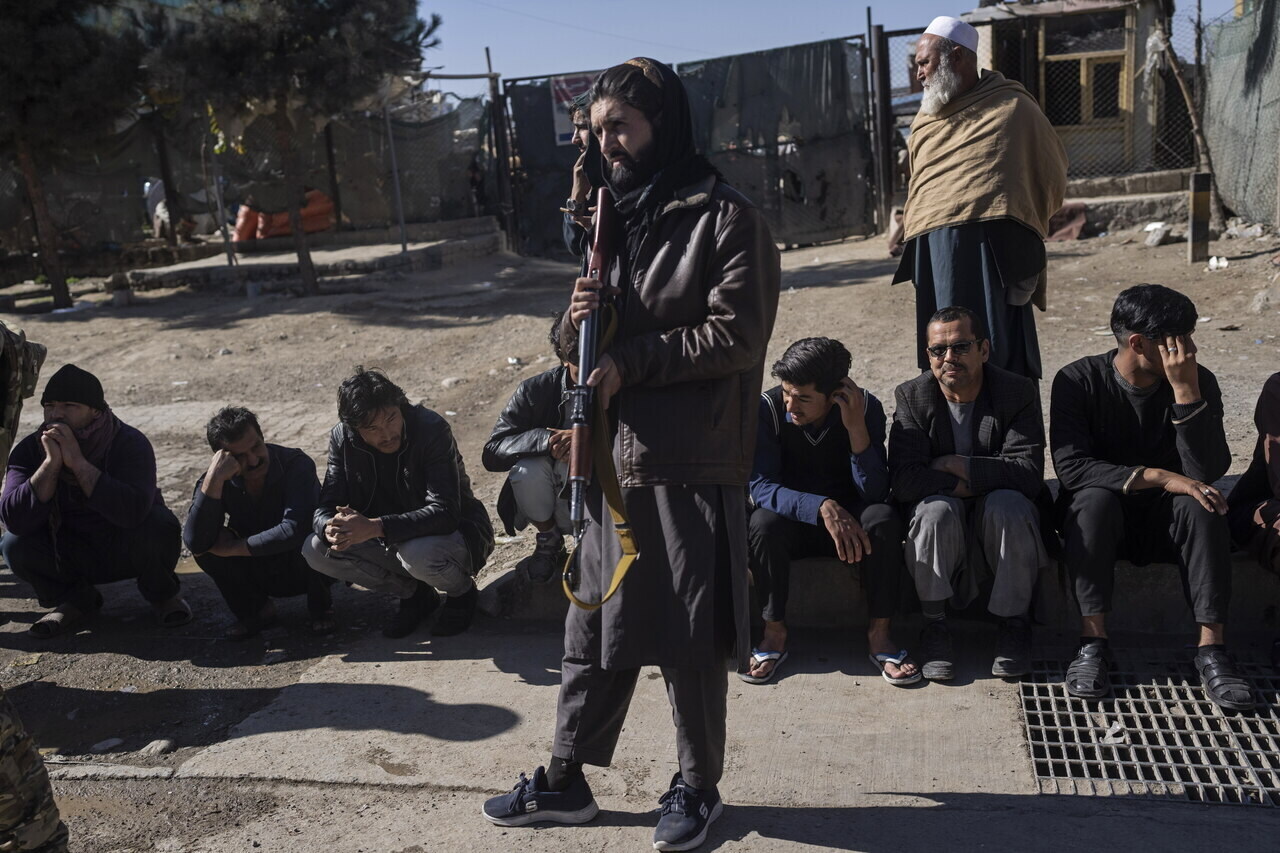
Early autumn, the whole western world was shocked by the consequences of the disastrous withdrawal from Afghanistan as well as the Taliban’s extremely fast offensive and takeover. However, history goes on; we don’t have much time to contemplate how we should relate to the new Kabul leadership, unless we want to make the same mistake again and cause an even bigger disaster by our indecision.
Since September, Afghanistan’s territory has undoubtedly been controlled by a Kabul-based interim Taliban government that exercises the power in terms of public administration (or, the government controls the country at least as much as the previous leadership did). No matter how irritating that may be for us in the West, facts are facts nonetheless. On the other hand, the Taliban’s current interim government is struggling with huge difficulties, which may push the long suffering country into an even more hopeless situation.
Afghanistan is ravaged by an increasingly grave economic crisis and famine compounded by the coming winter.
Current estimates suggest that half of the country’s population, i.e., 23 million Afghans are at the direct risk of not having anything to eat. The Taliban’s desperate situation may undoubtedly spur the government to minimize its costs and focus on keeping up the operation of one thing: the army.
On the other hand, the Taliban clearly has serious challengers such as the Islamic State and Al-Qaeda, who have constantly been trying to undermine the Taliban’s attempts to consolidate its power. The number of their supporters can be further increased by the Kabul government’s impotence and the deepening crisis.
The West is now facing a huge dilemma.
The Taliban has certainly been conducting such policy and employing such methods that are totally unacceptable for us, but they don’t seem to export their system outside of Afghanistan, and are willing to develop contacts with the international community. In contrast, they are confronted by such organizations that refuse to do even this bare minimum and openly want to engage the West in a never-ending fight.
The question is: what can the world do in this situation?
Will we abandon Afghanistan because the Taliban are unacceptable, thus risking famine, an intensifying crisis, mass migration and the growth of terrorist groups that are a direct threat to us? Or will we wait until China, which also has its interests in the region, intervenes and collects the profit offered by the potential reopening of the commercial routes and the investment opportunities, taking a strategic step towards Central Asia? Or will we be able to find some agreement with the most affected Central Asian countries, which are already looking to develop contacts with the interim Taliban government because Afghanistan’s stability is vital for them?
Time is running out and the West must give a clear answer. Otherwise we will surely lose.
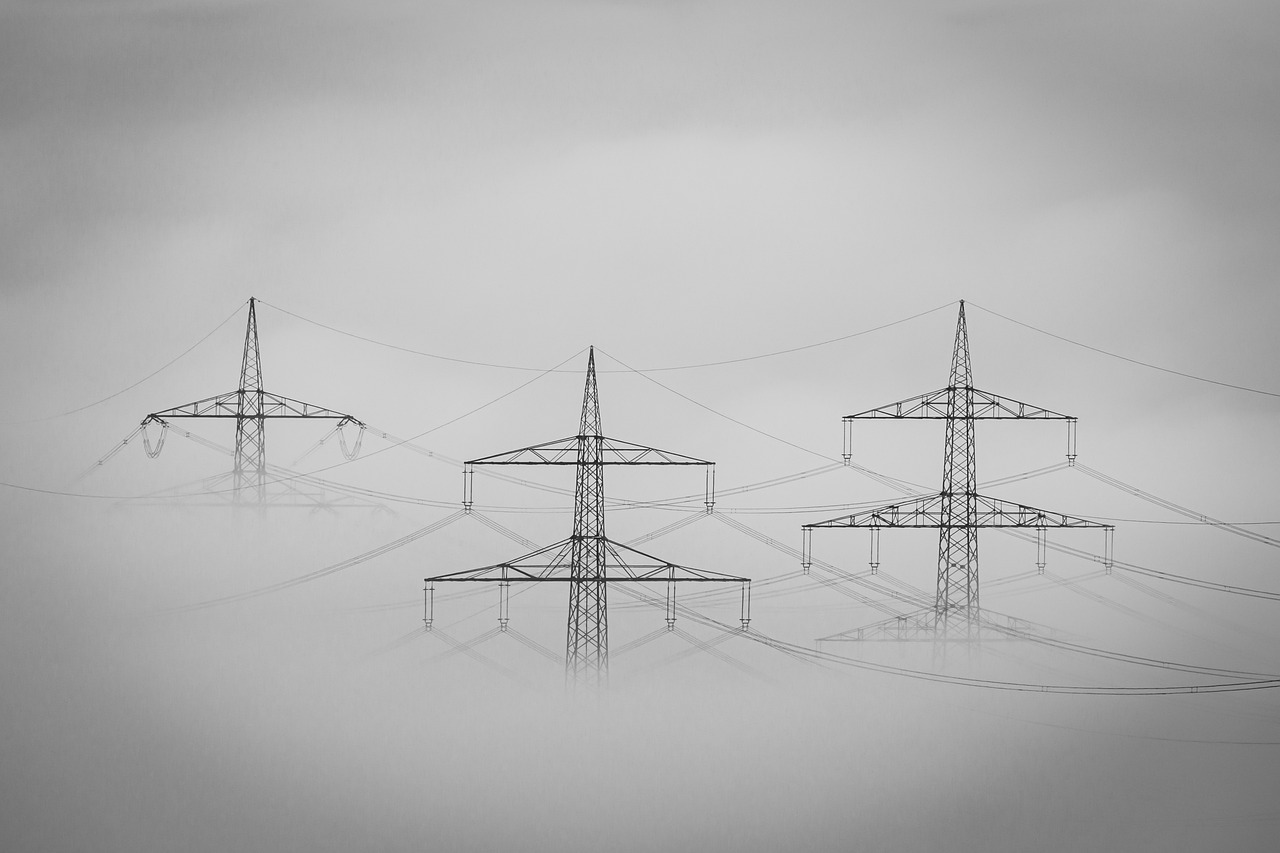
Looking at the post-WW2 chaos, Winston Churchill famously said: “Never let a good crisis go to waste!” The statesman was equally known for his sarcasm, optimism and insightful analyses. Well, the European Union has had no shortage of challenges. On top of the migration crisis, the Covid-entailed economic recession, the transition forced on us by the climate change and the populist-illiberal revolt against the European institutions and values, now we have an energy crisis in the form of an unprecedented gas shortage, too. The question is: will the current EU leaders have former British PM Churchill’s strategic thinking, situational awareness and ambition that are so sorely needed to utilize the opportunities lying in this crisis?
The magnitude of the gas price shock is clearly shown by the fact that an average European household currently pays five times more than last year. Although several EU member states have regulated household energy prices, it cannot be a long-term solution and offers no remedy for the problems of industrial providers at all. If the coming winter happens to be longer and colder than usual, sky-rocketing prices won’t be the only challenge: even gas supply can suffer difficulties, which already caused a lot of headache all around Europe in 2006 and 2009 amid the financial disputes over the Russian-Ukrainian transit supplies.
Having relatively low energy reserves and suffering from import dependency, our continent faces very serious challenges with the shortfall of gas supplies.
Undoubtedly, the current gas shortage is the result of multiple unfortunate coincidences. Firstly, Europe’s very few remaining gas sources have just been exhausted or closed down in recent years. For example, the Groningen gas field, which used to work with full capacity until recently, was closed down by the Dutch government after multiple earthquakes induced by the operations. The UK is not doing any better: even though it was a major gas exporter not long ago thanks to its North Sea fields, the country now must resort to import after the gradual exhaustion of its gas sources. This makes Norway almost the last gas exporter left in Europe, but the Scandinavian country, due to its geographical position, can only provide safe supply to a certain part of our continent.
As a result, most of Europe is left with relatively few options in terms of gas supply: they must obtain gas through pipelines or in liquid (LNG) form from outside the continent.
As far as the gas pipelines are concerned, many of Europe’s supposedly reliable partners of several decades have suddenly realized that energy can be more than just a source of predictable profit: it can be used for political blackmail, too. For example, Algeria, despite being the provider for two-thirds of the gas needs of the two states in the Iberian peninsula, i.e., Spain and Portugal, has just turned off the taps on the Maghreb pipeline going through Morocco. The reason: Algeria wants to apply pressure on its neighbour in their decades-long dispute over the Western Sahara territories. However, there’s another factor that has a much larger impact on Europe: the stoppage of the gas supply coming from the direction of Russia. Most European countries almost exclusively rely on Russian sources, and one third of the continent’s gas needs are covered by Russian stocks. Since post-Soviet Russia had several arguments with Ukraine over such issues as tapping into the pipelines or the financial settlement of transit fees, Russian state-owned Gazprom decided to fund the construction of multiple pipelines bypassing Ukraine in recent decades.
They first built the Yamal-Europe pipeline going through Belarus and Poland, then the Blue and Turk Streams under the Black Sea through Turkey, and finally the two parallel Nord Streams under the Baltic Sea to deliver Russian gas to Germany directly.
So there’s no shortage of gas pipelines. But then why is there a shortfall in gas supply? After the Russia-Ukraine conflict broke out in 2014 and Moscow annexed the Crimea, the Russian gas contracts and especially the German-Russian gas pipeline became a political issue. So much so, that the United States sanctioned the companies involved in the construction of the pipeline, while Germany’s energy regulator has held off from giving the clearance to Nord Stream 2, even though the works have been completed for quite a while. Some analysts believe the stoppage of the Russian supply is a response to the German authorities’ reluctance. While Russia denies it, suggesting increased domestic demands as the reason of the shortage, Kremlinology experts know that energy is a often used weapon in Russia’s political maneuvers and such coincidences are extremely rare.
Unfortunately, international market trends do not benefit Europe, either. China’s gas demand has doubled over the past decade while Japan’s, Korea’s and India’s transition from carbon-based energy production increases gas prices as well.
No wonder Russia has already started concocting grand plans to satisfy the exploding Asian energy market by building new pipelines from the Siberian gas fields to the East.
It is a warning sign that the world’s largest LNG exporter Qatar is holding up and supplying only the highest bidder.
At the moment there is no way to predict how persistent the high gas prices will be or how they will impact Europe’s economy, but we can already see that Europe’s gas import dependency must be reduced as soon as possible.
The most logical reaction seems to be to accelerate the transition to renewable energy.
The question is whether EU member states, who tend to enforce their national interests in the area of energy policy, are able to coordinate their efforts and develop a common energy policy with the involvement of EU institutions. Until we get an answer to this question, we can always hope this winter will be shorter and milder than usual.